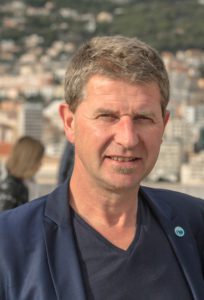The different futures that lie ahead
© United Nations Climate Change
Article issued by Ignace Schops, president of the EUROPARC Federation.
“Code Red for humanity”
That’s how Antonio Guterres, Secretary-General of the UN, describes the new report of the International Panel on Climate Change (IPCC). The IPCC report is considered a guideline for the climate policy of governments worldwide. The scientists cite 14,000 studies, most of which are new.
The climate is changing at a tremendous rate and it is undeniable that mankind is the cause of this. Only if the emissions of greenhouse gases decreases significantly in the coming decades, can the warming remain limited to 2 degrees, as agreed in the Paris Agreement.
Let me refresh our minds. In Greece, two hundred fires started in ten days. Turkey is also on fire and earlier fires raged in the western United States, Canada and Siberia. In Germany and Belgium, among other countries, flooding cost the lives of more than two hundred people. In China and India, too, tens of thousands had to be evacuated because of the rising water. And today, the Amazon forest emits more CO2 than it stores.
NASA figures show that in 2019, 2020 and this summer, the northern hemisphere had the hottest July on record. Earlier, the UN’s World Meteorological Organisation (WMO) also concluded that the climate crisis had ‘ruthlessly intensified’ by 2020.
Sponge, fridge, health centre
The effect on biodiversity is unprecedented: habitats and species are vanishing in only a few decades. As a global human society, we are the only ones to save our planet. For ourselves, the next generations and all living creatures living on it.
Natural ecosystems and protected areas play “again” a key role: they prevent urban regions from flooding because they store mass volumes of water like a sponge; natural ecosystems and Protected Areas have huge cooling effects and temper heatwaves.
They are our natural refrigerators. And last but not least Protected Areas provide all the ingredients for healing ourselves and function as the cradle for restoring our planet.
We are in the midst of a planetary emergency, facing climate, biodiversity and health crises. By addressing these as one integrated challenge we can bring back the balance between people, planet and prosperity.
A new financial bazooka
The extreme weather and the collapsing natural ecosystems are increasing the pressure on world leaders who will gather in Glasgow this autumn for a new UN climate summit, the twenty-sixth (COP 26) since 1995. There, they will be confronted with the first part of a new UN climate report that does not bode well.
The next Climate COP in Glasgow will be decisive. Failure means disaster. We know the reasons for climate change, we know how to solve them and we are not acting significantly. As we all know the real decision will be about the willingness to finance. Therefore we need a new financial bazooka and that can be found in a global agreement of bringing all the necessary climate investments “outside” the country budgets. It is a fair solution and socially balanced for all. The national debts will increase, but that can easily be solved over the years.
From 1,5 to 5°C global warming, different futures lie ahead. It is our choice. Believe me, it is better to have a planet in balance than a budget that is temperately out of balance. Let’s not destroy what keeps us alive.

Article issued by Ignace Schops